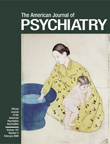Dr. Stotland Replies
To the Editor: Dr. Kal raises a thought-provoking question: how far ought we to go in pursuing our duty to heal? The woman whose religious beliefs led her to choose to die rather than to accept a blood transfusion was willing to back her values with her very life. She knew that her children would grow up without a mother, but she expected that they all, after a relatively brief sojourn in this life, would be rejoined in heaven for eternity. Her decision directly affected no one else. But the “frustrated caregivers,” in order to carry out their value of healing by administering a blood transfusion to this competent and unwilling woman, would have intruded on the autonomy and physical integrity of their patient. Would that not have violated their duty to do no harm?



